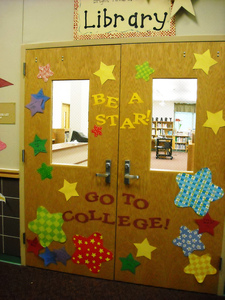
Don’t look for the public school monopoly to get it, however.
(Read the entire study here.)
Fifteen years ago, Cardinal John J. O’Connor, Archbishop of New York, issued an invitation (some might call it a challenge) to the chancellor of the New York City public school system to “send the city’s most troubled public school students to Catholic schools.”
If the city did so, he said, he would see to it they were educated.
| | Because Catholic schools are religious schools, the city wouldn’t allow any direct vouchers to students. So a group of private philanthropists stepped in and offered to cover a portion of private school tuition for eligible students for three years. The students had to qualify as low-income and either be entering first grade or be in grade 1-4. Then they were placed in a lottery from which scholarship winners were chosen. The researchers followed the scholarship winners and the losers, comparing the two through the years. By 2011, those students all were at least 21 years old. Of the African American students who attended private schools, college enrollment was 24 percent higher than among those who didn’t. That’s pretty clear evidence that politicians everywhere ought to begin looking seriously at voucher programs to help disadvantaged students have a chance in life. The study found no similar improvements among any other racial group. Hispanic students saw a slight increase in college enrollment among voucher recipients, but it was statistically insignificant. Plenty of theories exist as to why the outcome was most dramatic among African Americans. At the least, however, winning a voucher did not harm the education of any student, and it also saved public money. Tuition in New York City’s Catholic schools was estimated to be $1,728. That was 72 percent of the total cost per pupil of $2,400 at these schools. The total cost at public schools, meanwhile, was more than $5,000 per student. The voucher provided $1,400 in tuition, which means poor families had to make up the rest. Despite this, 77 percent of the recipients were able to do so at least part of the time. Despite the study, keepers of the public school monopoly continue to refuse to give an inch toward the proponents of allowing poor people real education choices. National School Boards Association executive director Anne L. Bryant told CNN the study didn’t account for how much parents get involved with their students. The type of parent who would enroll a child in a voucher program probably is the kind who would be most involved in helping that student, she said. Clearly, she hadn’t read the study. Researchers compared the voucher recipients with those who had applied for, and not received, vouchers in a random lottery. They also compared it to those who received, but didn’t accept, the voucher. The real story here is that African American students with, as Bryant called them, dedicated parents, were significantly less able to get their students into college as long as they were relegated to public schools. That is an inexcusable betrayal of people who want better for their kids. Rich kids get all the advantages. Poor kids have to take what the state offers them. Utah rejected a voucher system because of intense pressure from public school advocates. It’s time to rethink that decision, especially as budgetary pressures continue to mount on an overcrowded school system. Clearly, vouchers don’t offer a quick fix to declining educational performance, and they may not help everyone. However they ought to be available, alongside public charter schools, as choices for concerned parents. There is no discernable downside. |

 RSS Feed
RSS Feed

